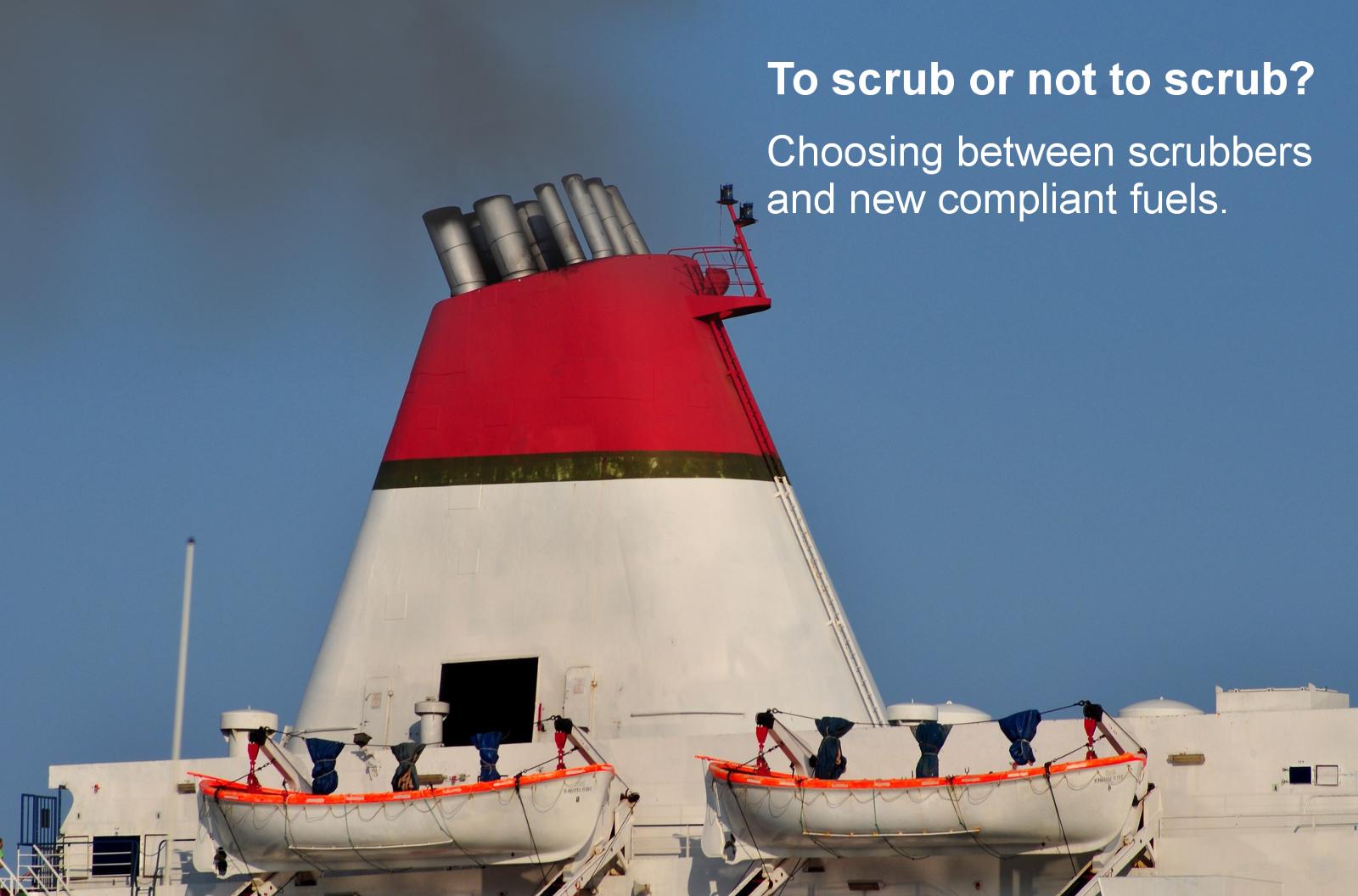Scrubbers and IMO 2020 Sulphur cap

I am again writing about my favorite topic. IMO’s 2020 Sulphur regulation will force global merchant fleet to radically reduce the Sulphur emissions by limiting the Sulphur content of the bunkers to 0.5% mass/mass. I enjoy analyzing this topic due to its complexity. Issue is so complex that even many shipowners seem to struggle finding the right answer.
For a brief moment there was hope that IMO would delay the introduction of the cap by few years to allow some sort of experience building phase. IMO shot this idea down and refused to give any grace period. 1st of January 2020 is now carved in stone. No backing up. Still seemingly many owners are still struggling to answer to the key question: Scrubbers or compliant fuels?
On the other hand, it seems that large majority of vessels will comply by switching to more expensive compliant fuels. According to Clarksons Research data, just over 1,500 vessels have either already fitted scrubbers or are waiting for the scrubber technology to be installed. This means roughly 2 per cent of global merchant fleet. Not a disruptive technology one could say.
Then why so few scrubbers? When use of new low Sulphur compliant fuels begins in just over one year, nobody knows where the price will ultimately set. It is, however, important to note, that the price of the compliant fuels is not of a major importance per se, what matters is the price difference between these new blends and traditional scrubber compliant HFO. There have been some estimates, that if the price difference is $250 USD / ton, scrubbers will be economically beneficial. Seems plausible –or even likely.
Economical factors are only one part of the solution.
In my previous blog I mentioned how some ports and nations have limited the use of open-loop scrubbers in their territorial waters. I called it nonsense. That was exaggeration and maybe not a good choice of words. After researching into the matter little bit more, I can definitely see the reason for the limitation. Probably the best summary of the issues is provided by Belgium based oil carrier Euronav on their 3rd quarter results announcement [1].
Euronav criticizes the scrubbers on the basis of uncertainty. It is hard to justify the major investments like scrubbers when future is so uncertain. Biggest uncertainty is the price of bunkers. As MFO is cheapest and MGO the most expensive, the new blends could end up close to the middle of the two.
Also, open-loop scrubbers are a big question mark. If it is later discovered that scrubbers in fact cause harm to the marine environment and, say EU, decides to ban scrubber usage, companies effectively just wasted millions of dollars. Euronav shares this concern and refers to lack of valid or long-term data availability.
Now as it still looks like scrubber sales are not really taking off, scrubbers can also be seen in negative light. As scrubbers use HFO, it means that there are ships out there bunkering HFO. This potentially opens a loophole for incompliance. If there were no scrubbers all merchant ships would be banned from bunkering HFO. Easy to monitor. Now scrubbers bring additional challenges to the monitoring of the compliance.
[1] Euronav, Euronav announces third quarter results 2018. Accessed 31.10.2018
About Author

Tuomo Keltto
Tuomo Keltto is a logistics engineer who continued his studies in Seoul, South Korea. He studied at the Korean Government scholarship for a Master's degree in international trade and logistics. Now he is back in Finland and he works at Neste in Porvoo. - He has previously been in Steveco Hietanen for three summers as a temporary stevedore and as a foreman for one summer.
